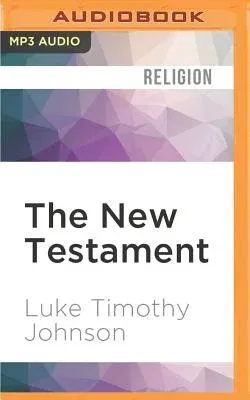As ancient literature and a cornerstone of the Christian faith, the New
Testament has exerted a powerful religious and cultural impact. But how
much do we really know about its origins? Who were the people who
actually wrote the sacred texts that became part of the Christian Bible?
The New Testament: A Very Short Introduction authoritatively addresses
these questions, offering a fresh perspective on the underpinnings of
this profoundly influential collection of writings.
In this concise, engaging book, noted New Testament scholar Luke Timothy
Johnson takes readers on a journey back to the time of the early Roman
Empire, when the New Testament was written in ordinary Greek (koine) by
the first Christians. The author explains how the Gospels, Acts of the
Apostles, and Revelation evolved into the canon of sacred writings for
the Christian religion, and how they reflect a reinterpretation of the
symbolic world and societal forces of first-century Greco-Roman and
Jewish life.
Equally important, readers will find both a positive and critical
reading of the New Testament--one that looks beyond its theological
orientation to reveal an often-surprising diversity of viewpoints. This
one-of-a-kind introduction engages four distinct dimensions of the
earliest Christian writings--anthropological, historical, religious, and
literary--to provide readers with a broad conceptual and factual
framework. In addition, the book takes an in-depth look at compositions
that have proven to be particularly relevant over the centuries,
including Paul's letters to the Corinthians and Romans and the Gospels
of John, Mark, Matthew, and Luke.
Ideal for general readers and students alike, this fascinating resource
characterizes the writing of the New Testament not as an unknowable
abstraction or the product of divine intervention, but as an act of
human creativity by people whose real experiences, convictions, and
narratives shaped modern Christianity.

